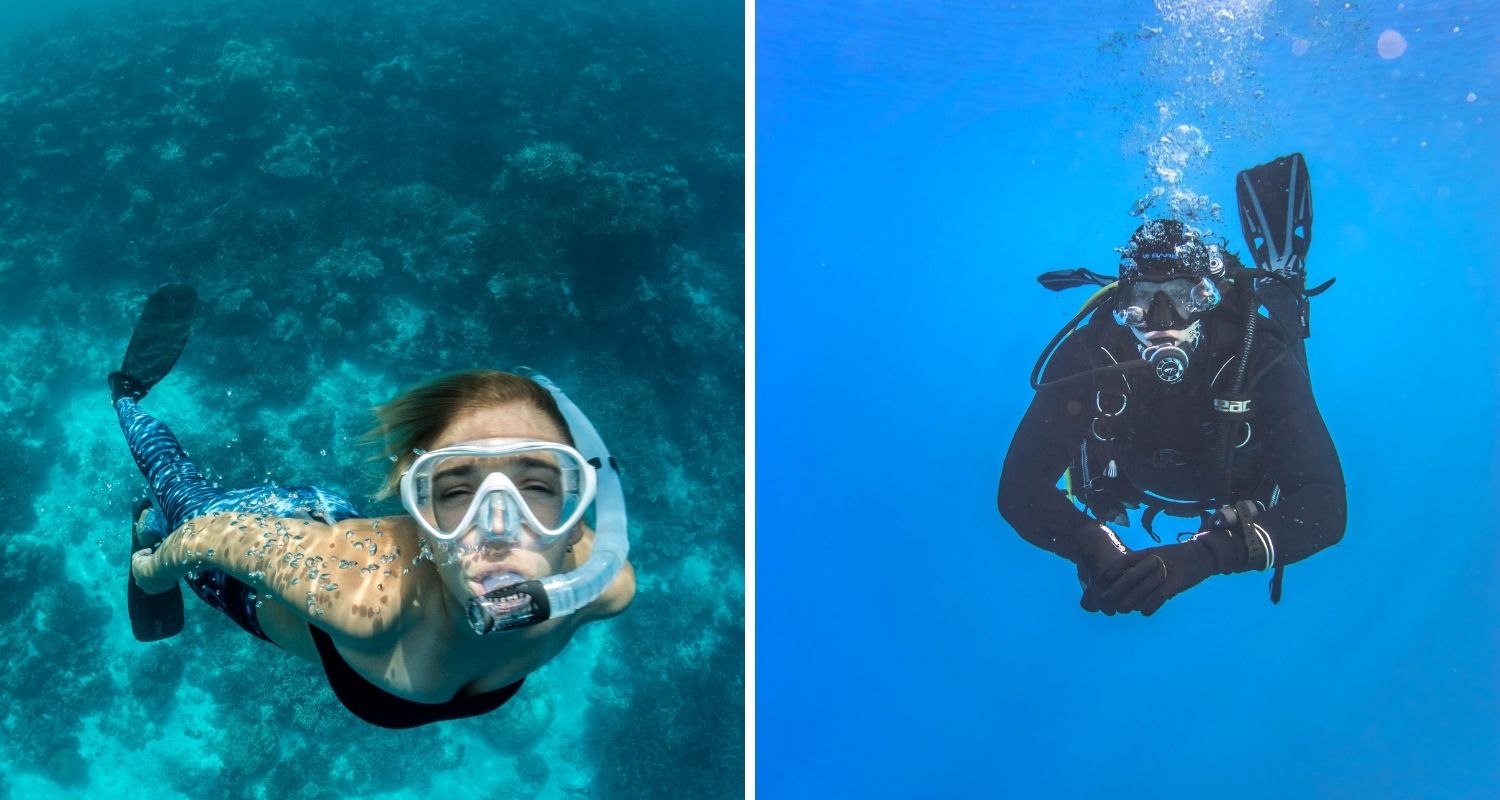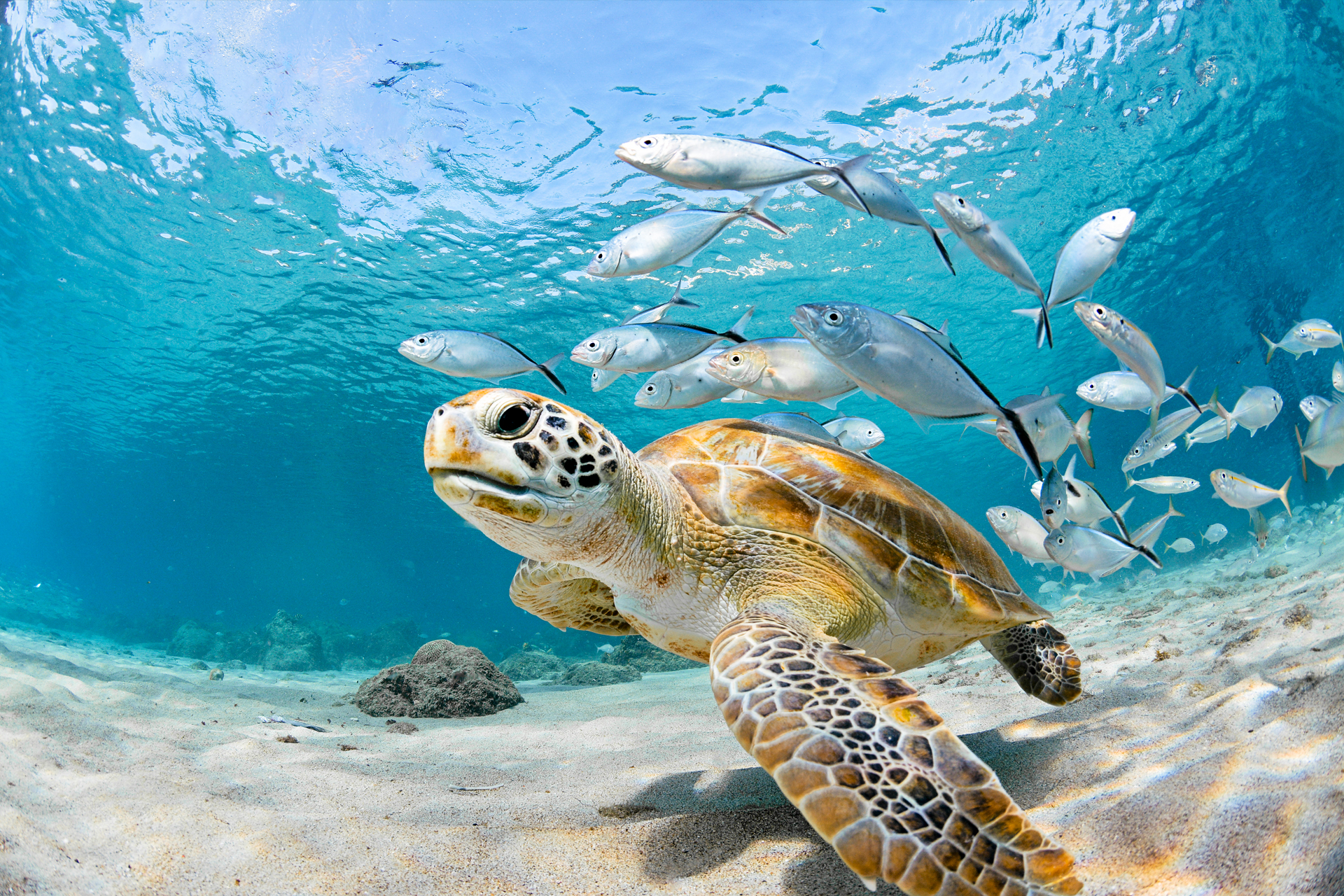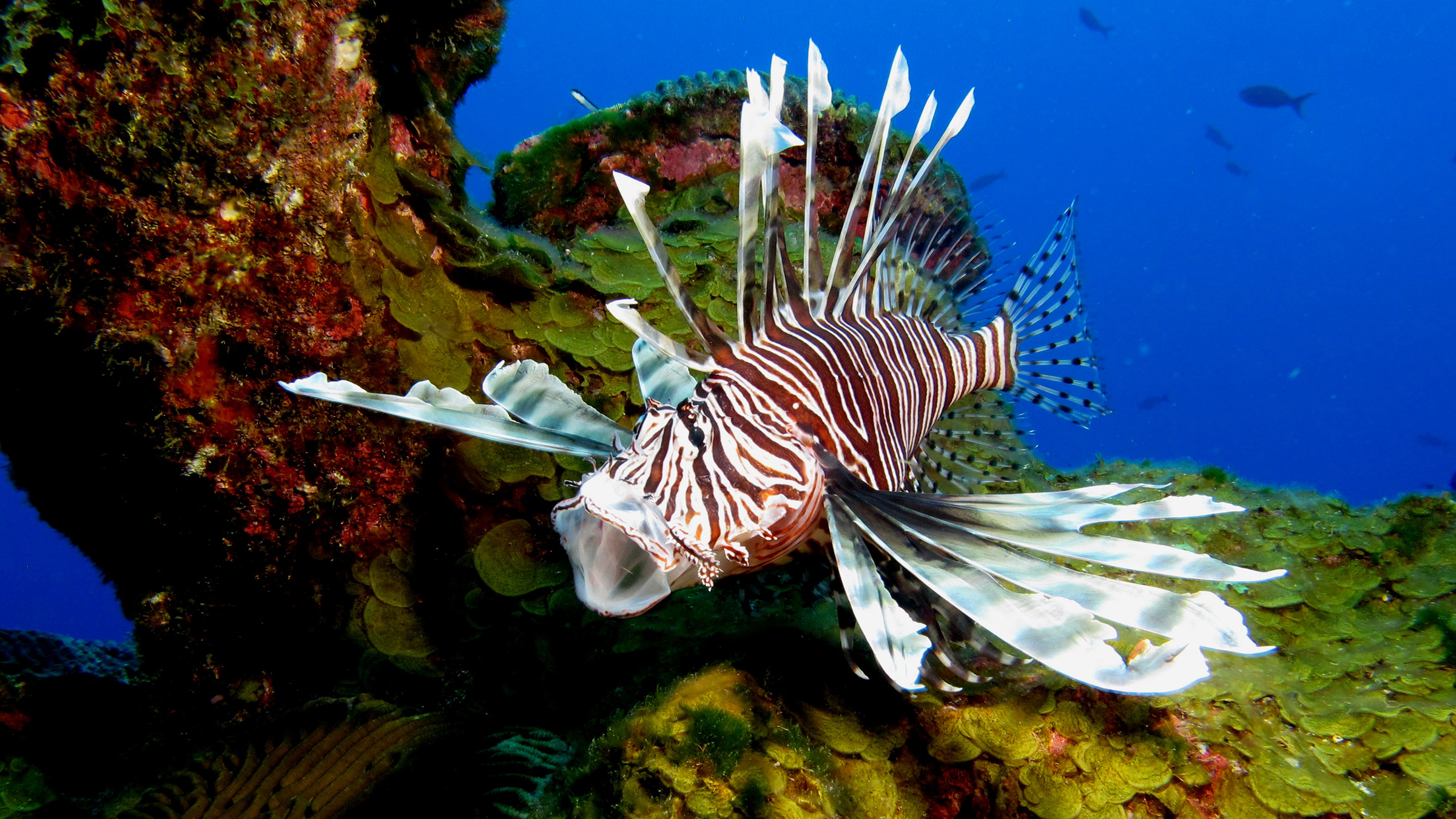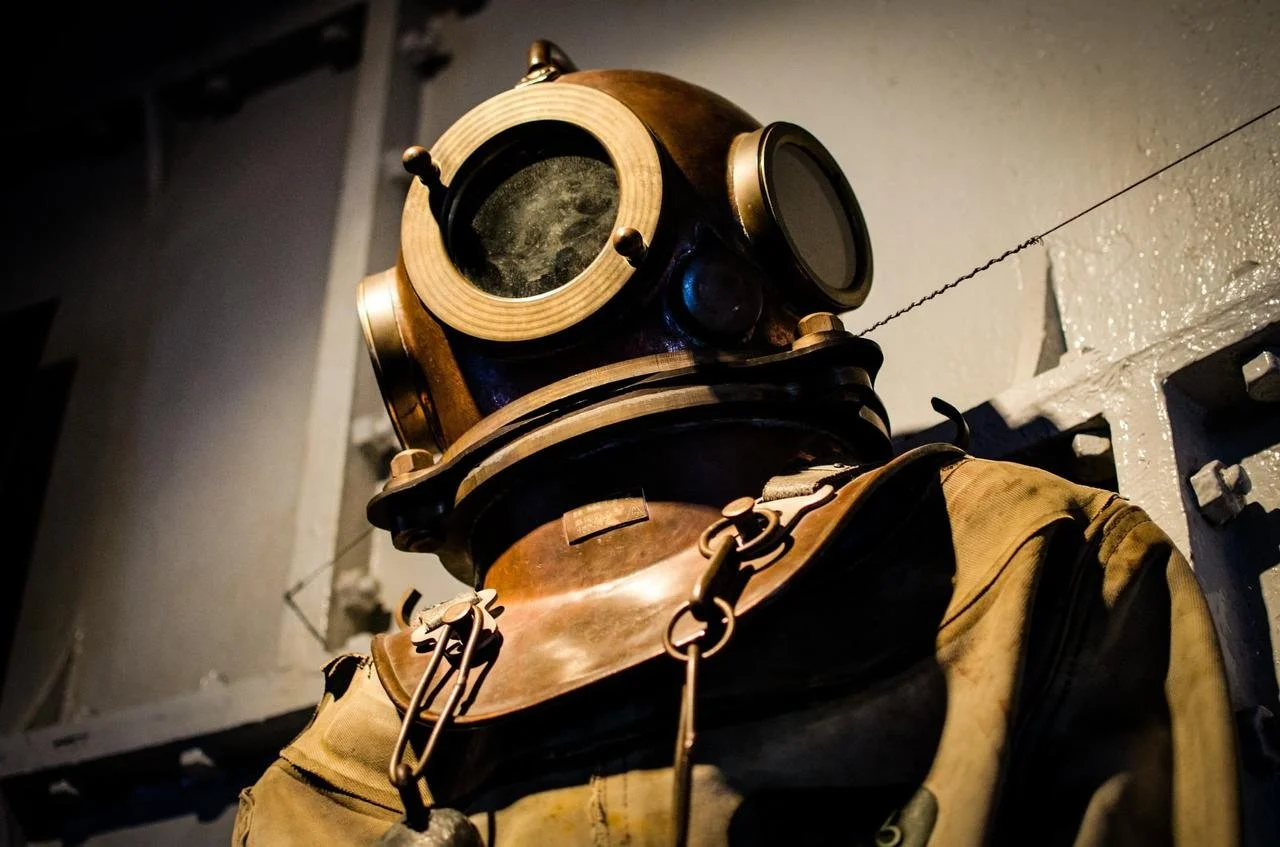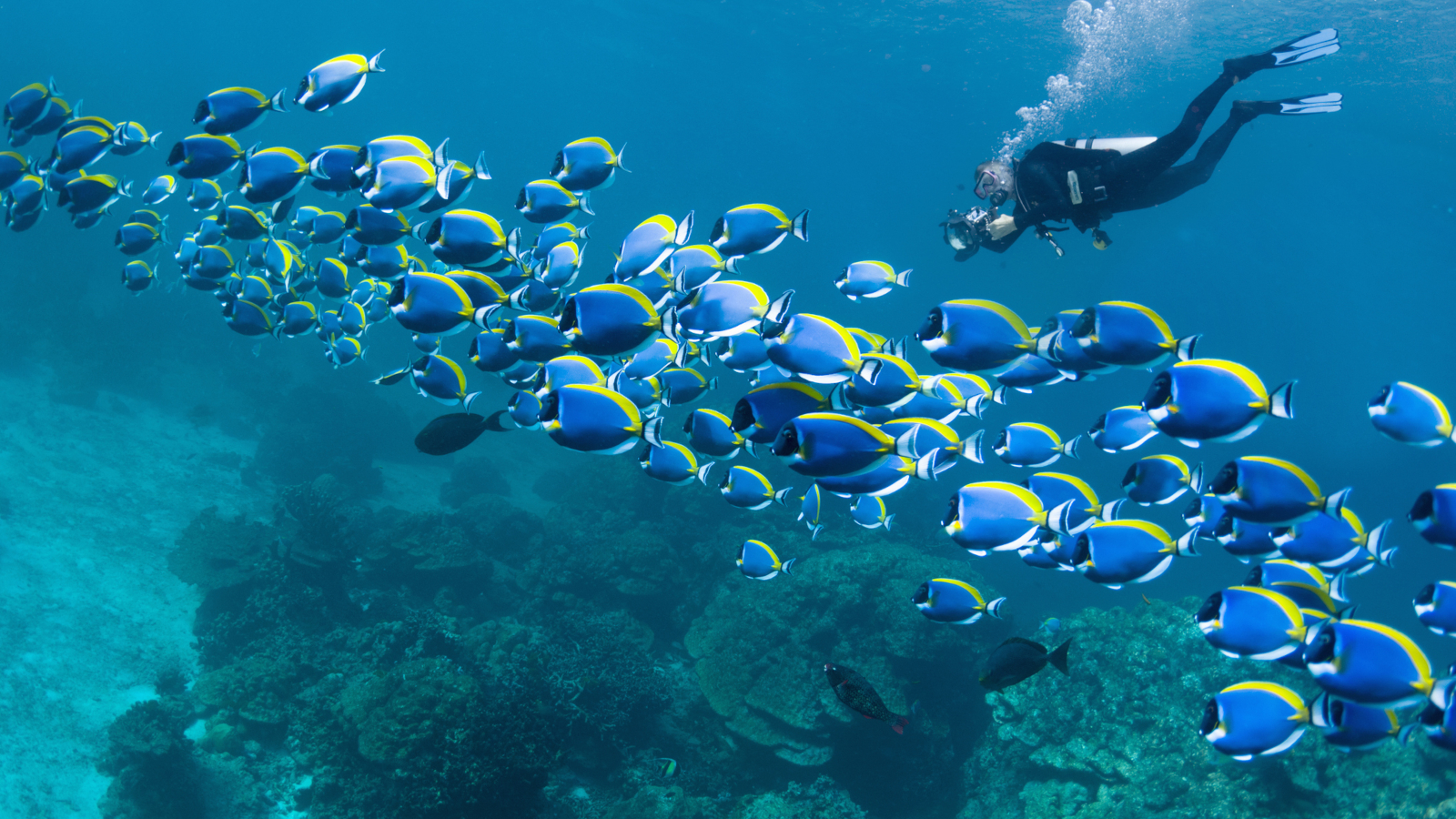When it comes to exploring the underwater world, many adventure seekers, tourists, beginners, and families often wonder: scuba diving vs snorkeling—which is better? Both activities offer unique experiences, but scuba diving provides a deeper, safer, and more immersive adventure for those eager to truly discover the ocean’s wonders. In this guide, we’ll explore 7 powerful reasons why diving is better than snorkeling and help you make the most of your aquatic adventures.
- 1. Immersive Underwater Experience
- Table of Contents
- 2. Safety Considerations for Beginners and Families
- 3. Accessibility for All Skill Levels
- 4. Longevity and Comfort Underwater
- 5. Equipment and Cost Comparison
- 6. Unique Experiences Only Scuba Can Offer
- 7. Community and Adventure Culture
- Frequently Asked Questions (FAQs)
- Conclusion
1. Immersive Underwater Experience
How Scuba Diving Takes You Deeper Than Snorkeling
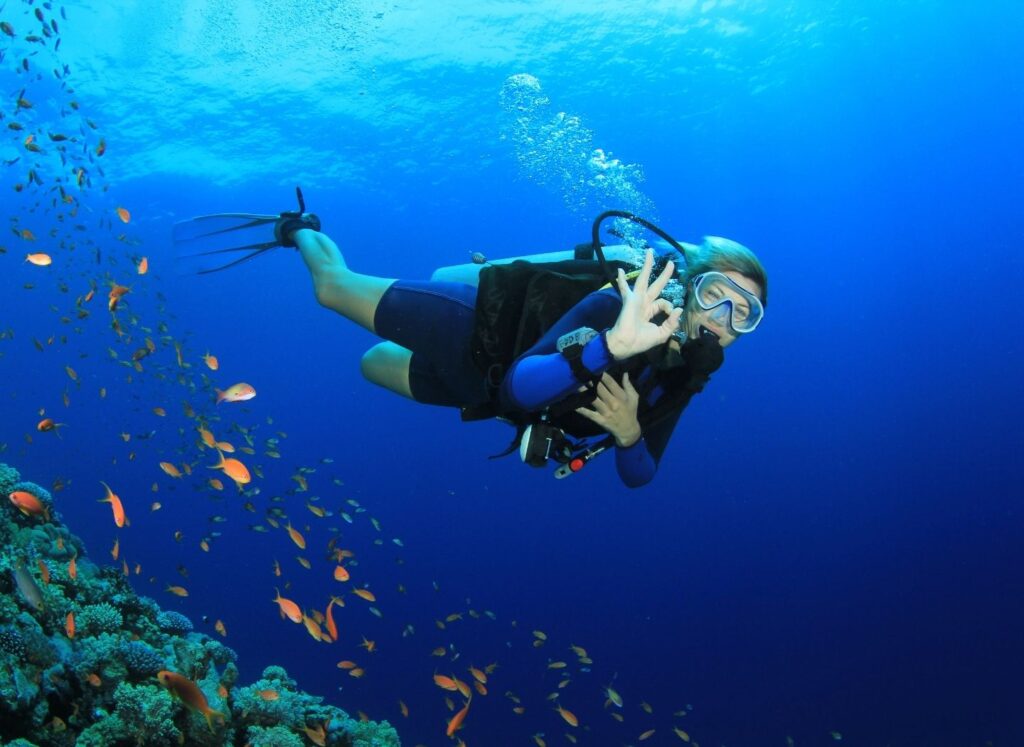
Table of Contents
While snorkeling allows you to float on the surface and enjoy the beauty of shallow reefs, scuba diving lets you dive much deeper, exploring hidden marine life and intricate coral formations. With scuba gear, including tanks and regulators, you can stay underwater for extended periods and truly experience the aquatic environment.
Depth Comparison Table:
| Activity | Average Depth | Typical Duration | Experience Level |
|---|---|---|---|
| Snorkeling | 1–3 meters | 30–60 mins | Beginner |
| Scuba Diving | 10–40 meters | 45–90 mins | Beginner to Advanced |
Scuba diving opens up a whole new world beneath the surface, giving adventurers a perspective that snorkeling simply cannot match. For beginners looking to explore safely, guided tours by Scoobadiveguide ensure a comfortable and memorable experience.
Explore Marine Life Up Close
Unlike snorkeling, which limits interaction with marine life to what you can see from above, scuba diving allows you to swim alongside fish, sea turtles, and even reef sharks. The underwater environment becomes interactive, providing amazing opportunities for underwater photography and wildlife observation.
2. Safety Considerations for Beginners and Families
Is Scuba Diving Safer Than Snorkeling?
A common misconception is that snorkeling is inherently safer than scuba diving. However, with proper training, scuba diving is extremely safe, especially with certified instructors. Diving equipment such as buoyancy control devices (BCDs) and regulators ensures a controlled experience, while snorkeling can sometimes pose risks of fatigue, strong currents, or accidental inhalation of water.
Tips for Non-Swimmers and First-Time Divers
Non-swimmers often hesitate to try underwater activities. The good news is that many scuba diving programs cater to beginners and non-swimmers. You can:
- Participate in shallow introductory dives
- Use flotation devices and tethered diving systems
- Join professional guided tours to ensure complete safety
This makes scuba diving accessible to almost anyone, from families to solo adventure seekers.
3. Accessibility for All Skill Levels
Can Non-Swimmers Do Scuba Diving?
Yes! Modern scuba diving courses are designed for beginners and non-swimmers. Introductory dives include training in confined water, ensuring you understand the basics of breathing, buoyancy, and safety before venturing into open water.
Guided Tours and Beginner Options
Many diving centers, like Scoobadiveguide, offer:
- Beginner-friendly dives
- Full instructor supervision
- Easy-to-use diving equipment
Even non-swimmers can enjoy underwater exploration without stress, making scuba diving a more inclusive and adventurous activity than snorkeling.
4. Longevity and Comfort Underwater
How Scuba Allows Longer Exploration
Snorkeling requires holding your breath and surfacing frequently, which limits how long you can enjoy the underwater scenery. Scuba diving, however, allows continuous breathing underwater via oxygen tanks, letting you explore for up to 90 minutes or more depending on the dive plan.
Breathing Techniques vs Holding Your Breath
With scuba diving, you breathe naturally through a regulator, reducing fatigue and increasing comfort. Snorkeling, by contrast, requires conscious breath control, which can be challenging for beginners or children.
The comfort of scuba diving allows you to fully enjoy the underwater world without constantly worrying about breath-holding or returning to the surface.
5. Equipment and Cost Comparison
Snorkeling Price vs Scuba Diving Cost
While snorkeling is generally cheaper, the added investment in scuba diving equipment and courses is well worth the experience. Here’s a basic comparison:
| Feature | Snorkeling | Scuba Diving |
|---|---|---|
| Equipment | Mask, snorkel, fins | Full dive kit, BCD, tanks |
| Training Required | Minimal | Certification or guided dive |
| Cost | $20–$50 per day | $100–$300 per dive/course |
| Duration | 30–60 mins | 45–90 mins |
| Depth | 1–3 meters | 10–40 meters |
Scuba diving may seem costly upfront, but it offers a full immersive experience that snorkeling cannot match. Many diving centers, including Scoobadiveguide, provide packages that make diving accessible and affordable for beginners and families.
Essential Gear for Both Activities
- Snorkeling: Mask, snorkel, fins, optional flotation vest
- Scuba Diving: Mask, fins, BCD, wetsuit, tank, regulator, weight belt
Having the right equipment ensures safety, comfort, and the ability to explore deeper waters effectively.
6. Unique Experiences Only Scuba Can Offer
Diving vs Freediving or Sea Walk
Scuba diving allows you to explore areas that freediving or snorkeling cannot reach safely. From coral walls to underwater caves, scuba diving opens up unique opportunities that appeal to adventure seekers. Unlike snorkeling, you can linger and fully appreciate the marine environment.
Photographic and Wildlife Opportunities
Underwater photography is a major advantage of scuba diving. You can capture vibrant coral reefs, exotic fish, and underwater landscapes up close. Adventure tourists and families can create lifelong memories, which is often limited when snorkeling near the surface.
7. Community and Adventure Culture
Scuba Diving Groups and Tours
Scuba diving is more than just an activity—it’s a community. Adventure seekers often join clubs, guided tours, or online forums such as “scuba diving vs snorkeling reddit” to share experiences, tips, and recommendations. This social aspect adds an extra layer of excitement and safety for first-time divers.
Adventure Seekers’ Social Experiences
Whether traveling solo, with friends, or with family, scuba diving provides an opportunity to meet like-minded individuals, bond over shared experiences, and even participate in group underwater adventures. This community element makes diving more engaging and rewarding than snorkeling.
Frequently Asked Questions (FAQs)
Q1: Can non-swimmers do snorkeling?
A1: Yes, non-swimmers can snorkel with proper flotation devices and guidance. However, snorkeling relies on staying on the water’s surface, so strong currents or fatigue can pose risks. For safer options, consider beginner-friendly scuba diving programs at Scoobadiveguide.
Q2: Which is safer, snorkeling or scuba diving?
A2: Both activities are safe when proper precautions are followed. Scuba diving offers better control, guided support, and emergency equipment, making it safer for beginners and families in many scenarios.
Q3: Is snorkeling just holding your breath?
A3: Snorkeling involves floating on the surface and breathing through a snorkel tube, not holding your breath. Freediving, however, requires holding your breath to dive deeper, which is different from regular snorkeling.
Q4: Scuba diving vs snorkeling for non-swimmers?
A4: Surprisingly, scuba diving can be safer and more enjoyable for non-swimmers when done with professional guidance. Beginner dives allow non-swimmers to stay submerged with full support, while snorkeling relies on personal swimming skills and surface floating.
Conclusion
When comparing scuba diving vs snorkeling, it’s clear that scuba diving offers a more immersive, safer, and adventurous experience. From deeper underwater exploration to longer durations, specialized equipment, and rich community interactions, diving stands out as the ultimate aquatic adventure for beginners, families, tourists, and adventure seekers alike.
For anyone eager to experience the underwater world fully and safely, check out Scoobadive for beginner-friendly courses, guided tours, and professional diving tips. Make your next underwater adventure unforgettable!
